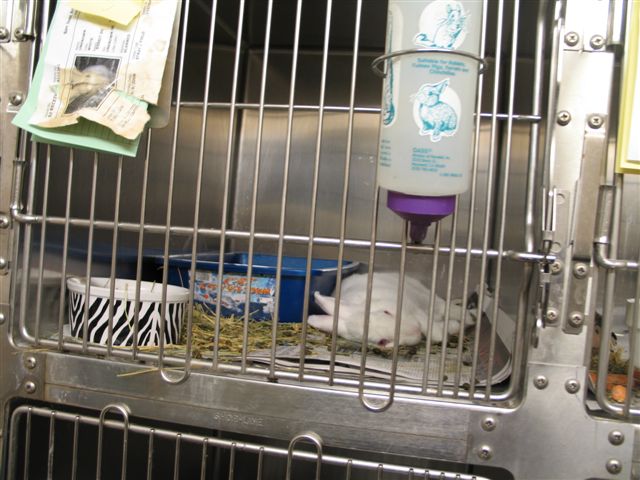Responsible Re-homing
PART I: Searching for a Solution
1 | Are you moving?
Finding a rental that allows rabbits or guinea pigs is possible if you give yourself enough time and stay flexible. Don’t give up too easily — try expanding your search area, even if it means a slightly longer commute to work or school. Sometimes, reaching out directly to landlords or leasing agents can help, too. Offering a pet deposit or agreeing to some extra rules might make them more open to allowing your pet.
If you’re moving to another state or even another country, remember that lots of people successfully move with their pets all the time. A cross-country road trip or a few hours on a plane is usually less stressful for your pet than being left behind.
Or if your housing challenge is temporary, explore options for foster care or pet boarding through a rescue. These services provide care for weeks (or even months), giving you time to find housing without giving up your pet.
2 | Don’t have enough space or time?
Many people consider surrendering their pet because they are hoping they’ll find more space or attention elsewhere.
However, your pet would rather be home alone all day and spend evenings and nights with you than end up in a shelter full of scary sounds and unfamiliar smells. In reality, they will likely end up with less space and even more limited interaction in a rescue caring for 50-100 animals at a time. Most county shelters are overcrowded and some may euthanize pets in just a week if they are not adopted. (According to the ASPCA approximately 920,000 shelter animals are euthanized each year.) Rabbits and guinea pigs, in particular, do not do well in a kennel; the stress can cause them to bite or scratch or cower in fear, leading to them being labeled “aggressive or un-adoptable” and euthanized.
Keeping your pets with you, even if space or attention is limited, usually provides them with a far safer, more stable, and compassionate environment than a shelter ever could.

3 | Experiencing behavioral issues?
Most rescues are happy to work with you to address and improve negative behaviors. The following issues are more common than you think and often have a simple solution!
- Spaying and Neutering: can greatly improve a rabbit’s behavior by reducing hormonal issues such as territorial aggression, spraying, and poor litter-box habits.
- Aggression: is often a learned behavior that can be corrected with proper training and understanding of your rabbit’s needs and what they are trying to communicate.
- Litter Training: rabbits are quick learners and often pick up litter-training in just 3-5 days. Most litter-box issues actually stem from too small or unsuitable litter-boxes which can be easily be adjusted.
- Chewing and Digging: are natural behaviors for rabbits and guinea pigs. However in excess may be a sign of boredom or frustration. By providing appropriate outlets, like chew toys and digging boxes, and ‘bunny-proofing’ their space, these behaviors can be redirected in a way that keeps your pet (and your home) safe.
4 | Financial difficulties
If you are having a tough time financially, there are resources and support networks available to help! Many communities, rescues, and online rabbit groups understand the financial strain pet care can bring and are happy to lend a hand. You might be surprised by the generosity of fellow animal lovers — many are willing to ship supplies, such as hay, pellets, litter, or even small funds to keep pets with their families. Local rescues and animal welfare organizations can also provide guidance and may have programs in place to help bridge financial gaps for pet owners in need.
By reaching out, you’re not only giving yourself time to regain stability but also ensuring that your pet remains in a familiar, loving environment. Financial challenges can feel overwhelming, but with a little support from your community, you can often keep your pet at home, reducing the stress and trauma they would experience from being surrendered.
5 | Allergies
Giving up your pet due to allergies should be the last resort, not the first option.
Many people are actually NOT allergic to their rabbit or guinea pig, but rather to their hay! Switching from Timothy to Orchard Grass hay can make a world of difference. Other remedies to help alleviate allergy symptoms are: using paper-based litter instead of straw or wood shavings, keeping your pet’s enclosure the living room rather than the bedroom, investing in air purifiers, and cleaning more frequently. As a final measure, many people opt to manage their symptoms with antihistamines rather than parting with their beloved pets.
Please exhaust every reasonable option before considering re-homing.

